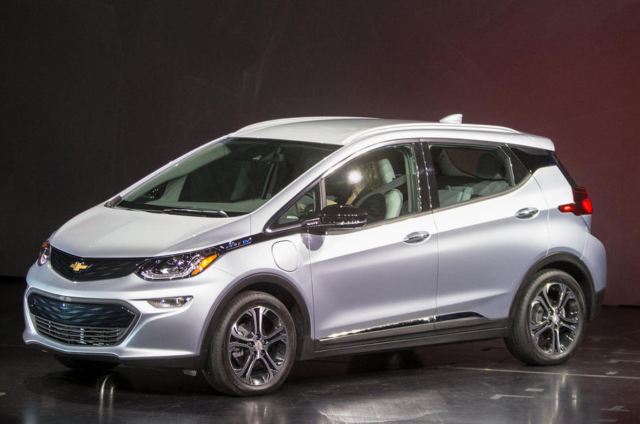The world keeps getting warmer and the burden of a greener eco-space for business and technology is compelling manufacturing to refocus innovations on more electric, carbon-neutral product lines.
American car giant – General Motors – has made known its intention of going full electric by 2035.
The Washington Post reports that GM — maker of Buicks, Cadillacs, Chevrolets, and Corvettes, among others — will manufacture about 30 types of electric vehicles. By late 2025, about 40 percent of the company’s U.S. models will be battery-powered electric vehicles, pledging to make its factories and other facilities carbon neutral by 2040.
Also, Volkswagen is targeting 70 new electric models in the next 10 years. It intends to spike its electric-vehicle production in 10 years to 22 million and pour about $33 billion into electrifying its other vehicles.
Ford, which has been building vehicles with internal-combustion engines for more than a century, is spending $11.5 billion through 2022 on new EVs. Tesla plans to increase sales of its all-electric fleet.
The pressure to go electric and carbon neutral is gradually creeping into the African automobile market.
In Ghana, local automobile firm, Kantanka, has initiated the drive to go electric with the manufacturing of budget cars.
Already, the automobile company has remodeled its market target as it is now producing small economic vehicles on demand. These cars come in the range of a manual gearbox as well as an electronic automatic gearbox powered by lithium batteries.
“With just GH¢45,000, you can get one of these small cars that come in manual and electronically powered automatic gearboxes. We have assembled them for intercity transportation and not countryside travels,” General Manager for Kantanka, Francis Kojo Kudjordzi announced.
Ghana’s automobile policy has opened the West African economy to car manufacturing giants like VW to establish assembly plants and manufacture vehicles to suit the available market of a fledgling middle working class.
But even as the culture of going electric and carbon-neutral gradually hits home, Kantanka is already exploring partnerships to expand.
“We are expanding in the months ahead. For now, we need an investment capital of about $100 million. This is crucial at the moment when demand is fast increasing and our market share is expanding,” he revealed.
The Bloomberg New Energy Finance (BNEF) has predicted a green-energy renaissance of the entire global energy industry. It projects that electric cars in Europe and North America would be cheaper to buy and run than traditional vehicles by 2030.
Amidst the fortunes of this renaissance, the trickle-down effect of dumping on Africa looms.
With about half a million used cars imported to Nigeria alone yearly, Africa has become the continent, where condemned vehicles go to die. Most of the vehicles are from the US, Japan, France, and brands such as Toyota are now commonplace on the countries’ roads.
This trend, the Ghana Automobile bill seeks to kill.
Trade Minister, Alan Kyeremanteng has insisted the ban on salvaged and overaged vehicles will do justice to Ghana’s resolve of going green in the future.
Latest Stories
-
Ghana’s LPG prices rank among the highest globally – LPG Marketers Association
3 mins -
Filth Exhibition: Residents near Korle Gonno bear the brunt of nationwide filth
17 mins -
We’ve not selected NPP members as returning officers – EC replies Mahama
34 mins -
We’ll not honour any invitation – ECG tells Ashanti Regional Minister
59 mins -
Dumsor vigil to hit Accra
1 hour -
Supreme Court rule for dual citizens to hold other key positions laudable – Kwaku Asare
1 hour -
‘No one is above the law’ – CAF president on match-fixing allegations against Samuel Eto’o
1 hour -
Manchester City thrash Brighton to go second in table
2 hours -
NDC’s running-mate speech proves readiness to lead – Asah-Asante
2 hours -
Further win for nibima as another KNUST study supports medicinal prowess
2 hours -
World Bank’s food price index eases; maize, wheat prices hit 3-year low
4 hours -
2020 polls all about pulling Ghana back from precipice of destruction, corruption – Naana Jane
4 hours -
Guru expresses interest in contesting SRC election at UG
4 hours -
Oil prices projected to average $84 in 2024 – World Bank
4 hours -
Meet 2 Ghanaian entrepreneurs on a mission to connect 1m African professionals to global companies by 2034
4 hours

